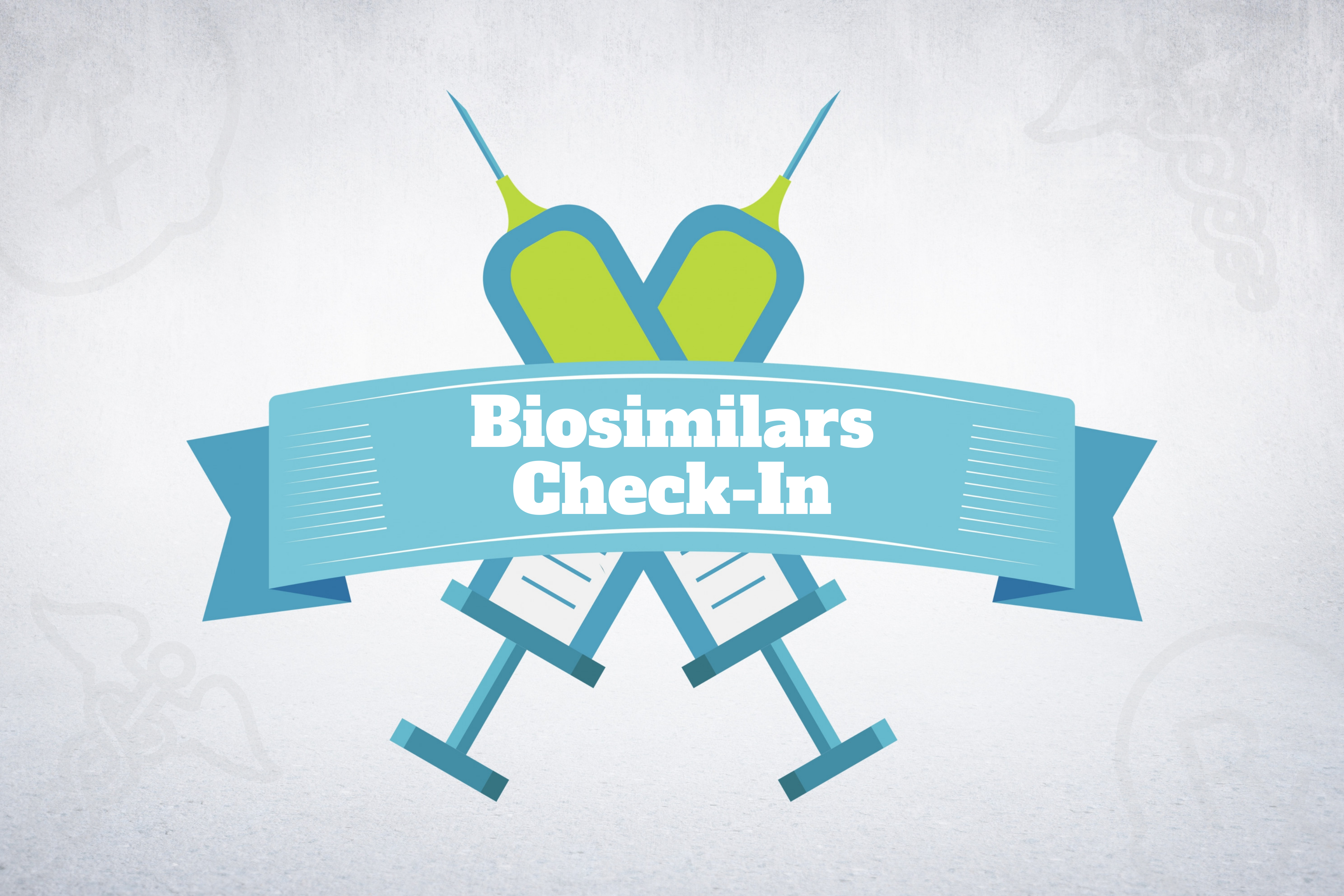- Bone Health
- Immunology
- Hematology
- Respiratory
- Dermatology
- Diabetes
- Gastroenterology
- Neurology
- Oncology
- Ophthalmology
- Rare Disease
- Rheumatology
Biosimilars Check-In: BI Launches Unbranded Adalimumab; New Omalizumab Deal; CRL for Insulin Aspart
Boehringer Ingelheim (BI) launches an unbranded version of its adalimumab biosimilar; Alvotech and Kashiv Biosciences partner for an omalizumab biosimilar candidate; the FDA issues a complete response letter (CRL) for Biocon’s insulin aspart biosimilar.

Boehringer Ingelheim (BI) launches an unbranded version of its adalimumab biosimilar; Alvotech and Kashiv Biosciences partner for an omalizumab biosimilar candidate; the FDA issues a complete response letter (CRL) for Biocon’s insulin aspart biosimilar.
BI’s Unbranded Adalimumab Biosimilar
BI launched an unbranded version of its adalimumab biosimilar (Cyltezo) at an 81% discount to the originator (Humira). For comparison, the company’s branded version of the drug is priced 5% lower than Humira, which currently has a list price of $6922 per month.
Branded Cyltezo launched on the US market in July 2023, and was approved as the first interchangeable adalimumab biosimilar (second interchangeable biosimilar overall) in November 2021.
The dual-pricing strategy has been very popular in the adalimumab biosimilar space, where 3 other adalimumab biosimilars (Amjevita, Hyrimoz, Hulio) launched with 2 wholesale acquisition costs (WACs). According to Julie Reed, MS, executive director of the Biosimilars Forum, this is to ensure that companies can convince pharmacy benefit managers to put their products on formulary (high WAC) and to ensure that uninsured patients can have access to the product at a decent price (low WAC).
The news comes as the FDA approved an interchangeability designation for Abrilada.
Alvotech, Kashiv Biosciences Partnership
Alvotech and Kashiv Biosciences have signed an exclusive licensing agreement for AVT23 (ADL018), a proposed omalizumab referencing Xolair, which is currently in clinical development.
“We are delighted to partner commercial rights to our omalizumab biosimilar program to Alvotech, a global biosimilar company, for multiple major geographies…. We look forward to continued enrollment of patients in our global phase 3 clinical study to expand access to this treatment for patients,” said Sandeep Gupta, PhD, CEO of Kashiv.
The partnership covers all 27 EU member stakes, the United Kingdom, Australia, Canada, and New Zealand. Per the agreement’s terms, Alvotech will have exclusive license to commercialize AVT23 and Kashiv Biosciences will manufacture and develop the biosimilar. Kashiv will also receive upfront payments and subsequent milestone payments and royalties.
Omalizumab is a humanized monoclonal antibody that targets free immunoglobulin E to treat allergic asthma, chronic rhinosinusitis with nasal polyps, and chronic spontaneous urticaria.
“We are very pleased to enter into this exclusive development and commercialization agreement for omalizumab. This demonstrates how Alvotech can leverage its platform and pursue attractive markets either by developing and manufacturing products in house or through in-licensing. Here, we can deploy Alvotech’s market access expertise as well as leverage our global commercial partnerships,” said Robert Wessman, chairman and CEO of Alvotech.
CRL for Biocon’s Insulin Aspart Biosimilar
The FDA has issued a CRL for Biocon Biologic’s insulin aspart biosimilar candidate, according to a report from BQ Prime. For reference, there are no insulin aspart biosimilars in the United States and there are 3 in the European Union, including Kirsty, which was developed by Biocon Biologics.
The CRL did not cite any issues with the submitted data package or the biosimilar product itself; instead, it referenced deficiencies with the pre-approval manufacturing facility inspection of Biocon’s Malaysian facility that was held in August 2022.
Biocon submitted a Corrective and Preventive Action plan in September 2022 that the FDA deemed adequate. The plan would require a re-inspection of the facility. A spokesperson from Biocon indicated that the company will continue to engage with the FDA to resolve the issues.
Newsletter
Where clinical, regulatory, and economic perspectives converge—sign up for Center for Biosimilars® emails to get expert insights on emerging treatment paradigms, biosimilar policy, and real-world outcomes that shape patient care.
